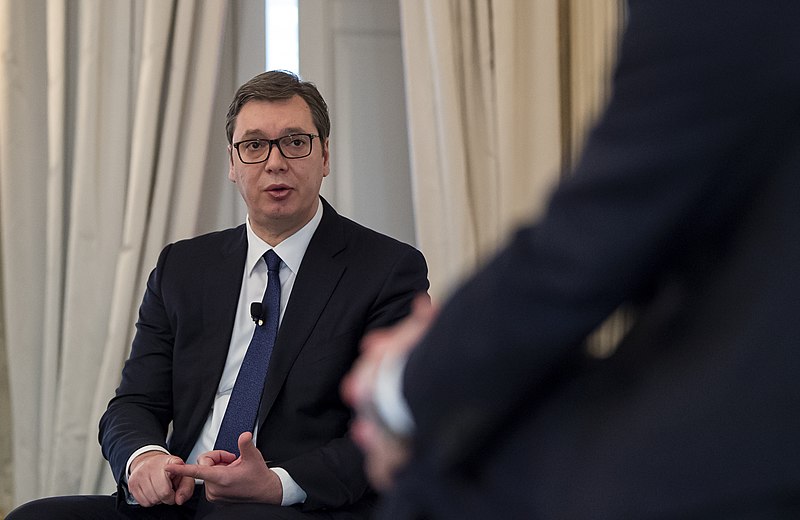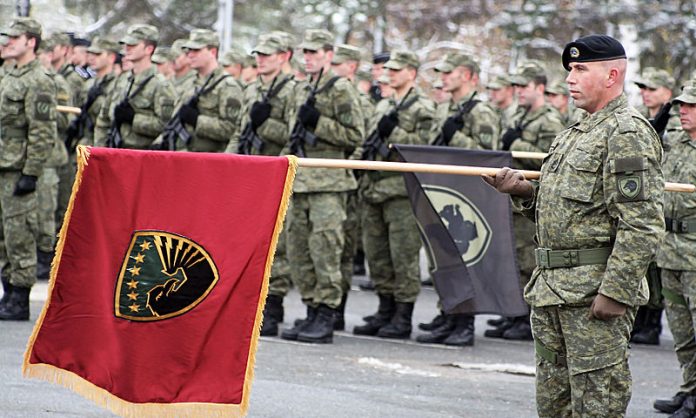
The resumption of open warfare between Armenia and Azerbaijan over the contested Nagorno-Karabakh region has prompted a significant degree of interest within the security sector of the Western Balkans.
This is not because there are any particularly major links between these two regions. Granted, there has been an increase in investment by Azerbaijan in the Western Balkans over the last decade, and a concurrent rise in arms sales by Balkan arms manufacturers to the two Caucasian rivals. This interest is instead rooted in the broadly proximate histories of the two areas since the end of the Cold War, and the political lessons that Western Balkan politicians and military planners are gleaning from the political and military situation on the ground in Nagorno-Karabakh.
In in the era fleeting Western consensus and renewed great power competition, small states and regional powers are determining the shape and scale of what is possible and permissible international relations. And the Western Balkans are no exception.
Academics have written extensively over the past three decades about the historical parallels between the dissolution Yugoslavia and the Soviet Union, and the similar effects these events had on the ethnically and religiously heterogenous regions of these respective federations. Comparative studies between Nagorno-Karabakh, Georgia, Bosnia and Herzegovina (BiH), North Macedonia, and Kosovo are widespread, especially among scholars of ethnic conflict and post-communist politics. The shared, albeit differently constituted, historical influence of Turkey and Russia on both regions is also often reflected in the scholarship.
For contemporary security sector professionals and policymakers in the Western Balkans though, the issue is one of realpolitik, not comparative politics.
The situation in the South Caucasus has garnered the most interest in four key capitals: Sarajevo, Banja Luka – the capital of BiH’s largely autonomous, Serb-dominated Republika Srpska (RS) entity – Belgrade, and Pristina. BiH, Serbia, and Kosovo are the three states which have the most significant outstanding issues with their respective territorial integrity, and revanchist pretensions by neighboring states. Accordingly, it is they who are looking to glean lessons (and diplomatic signals) from the fighting in the narrow lands between Black Sea and the Caspian and apply them to their own region.
For Sarajevo, the concern is with the secessionist tendencies of the Serb nationalist regime in Banja Luka, and the steadfast support the government of Milorad Dodik, the long ruling strongman leader of the entity, enjoys in these efforts from Belgrade and Moscow.
Belgrade and Banja Luka, on the other hand, are likewise concerned with the status of the RS. But their interest is with the prospects for incorporating the entity into Serbia proper. That is, they are concerned with the central, but ultimately unrealized, objective of the regime of Slobodan Milosevic, and his nearly four-year long campaign of genocide and ethnic cleansing in Bosnia.
The RS itself was the product of Belgrade’s war effort in the 1990s, and while it gained formal international recognition through the signing of the U.S. brokered Dayton Peace Accords in 1995, it was only as a constitutive administrative region within a sovereign Bosnian state. The unreformed Serb nationalist establishment in Belgrade and Banja Luka though has never given up its pretensions to the “left bank of the Drina River” or the creation of a Greater Serbian state.
This also intersects with the situation in Kosovo. While Pristina formally declared independence in 2008, Kosovo’s international status remains contested. Serbia does not recognize the state, and its allies in Moscow and Beijing have blocked Kosovo from taking a seat at the UN and various other international institutions. Long-stalled talks between the two sides resumed, albeit in stochastic fashion, in recent months, with a (bizarre) summit between President Aleksandar Vucic and Prime Minister Avdullah Hoti at the White House a high-water mark.

This meeting followed nearly two years of speculation that the two sides were inching towards a so-called “land swap” – that is, a partition pact – which would see Kosovo hand over to Serbia a handful of its predominantly Serb populated northern municipalities, in exchange for Serbia granting Pristina possession of several Albanian majority municipalities in the Presevo Valley.
But even as these improbable diplomatic maneuvers were being orchestrated, all relevant regional actors have also been making strident investments in their hard power capacities. As I noted recently, “between 2019 and 2020, Serbia saw the 5th biggest increase in military spending in the world”, an extraordinary year-on-year gain of 43%. Regional news outlets have reported of an “arms race” between Zagreb and Belgrade since the middle of the decade. Kosovo is in the process of transitioning its paramilitary Security Force into a proper military. Bosnia’s fractured constitutional political order makes arms procurement a fraught exercise, but the RS has made dramatic overtures towards the creation of its own paramilitary force amid loud threats of secession and as leader in Sarajevo renew their efforts to secure NATO membership.
And then there are the direct lessons of the Nagorno-Karabakh scenario. Local policymakers are watching with great interest – and alarm, in some quarters – the near total absence of international efforts to mediate the fighting. The scale-tipping power of Turkish and Israeli drones deployed by Azerbaijan is also spurning conversation, especially considering Serbia’s recent procurement of a spate of Chinese attack drones. In fact, Serbia is already eyeing the procurement of a batch of Turkey’s Bayraktar UAVs, owing to their remarkable performance on this battlefield, as well as in Syria. The widely reported presence of foreign fighters on both sides of the conflict, as well as the heavy-handed, if still technically indirect, involvement of Turkey – a major regional power, acting unilaterally at odds with its NATO allies, primarily concerned with Moscow’s reaction – are all impacting local war-gaming scenarios.
Would Turkey act as forcefully to protect and/or advance the interests of Sarajevo and Pristina in a crisis in the Western Balkans? Would the rest of the Atlantic community be as passive in the event of actual armed conflict in the region, notwithstanding EU and NATO forces in both Bosnia and Kosovo? What if Dodik pulled the proverbial trigger on a secession attempt, as he apparently nearly did in 2014 – how quickly could Serbia and Russia come to its aid? Or would the Bosnian Armed Forces, despite their near certain fragmentation along ethnic lines, manage to quickly capture the Brcko and/or Mrkonjic Grad pockets, splitting the RS in two and immediately threatening Banja Luka? How would Croatia and Montenegro, both neighboring NATO states frequently at odds with Belgrade respond to such overt Russo-Serbian aggression (which has to date been, largely, clandestine)?
To be clear, each of these scenarios would be catastrophic for the Western Balkans. Nearly three decades since the end of the Yugoslav Wars, even the mere suggestion of potentially renewed violence in the region speaks to a profound deterioration in the Atlantic community’s capacities in Southeastern Europe’s proverbial badlands. NATO, which launched its first-ever military operations during the Yugoslav crisis, would do well to take sober stock of local thinking regarding the situation in Nagorno-Karabakh, and act to preempt any potential adventurism in the short term.
In the long term, the continued enlargement of NATO – with Bosnia the obvious next candidate – still represents the best model for long-term security in the region. The great advantage the Western Balkans has historically enjoyed over South Caucasus, and other post-conflict zones, is its location. But being situated in Europe alone is no guarantee of peace, as Ukraine, Belarus, and the Yugoslav dissolution crisis of the 90s all show. With the proliferation of security crises along Europe’s southern and eastern peripheries, now is the time to lock down vulnerable areas. No one can afford for the Western Balkans to become a hot spot again.
The views in this article represent those of the Author alone; not CHACR, the Army or the MOD.





